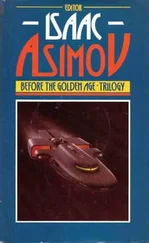Sam Eastland - The Beast in the Red Forest
Здесь есть возможность читать онлайн «Sam Eastland - The Beast in the Red Forest» весь текст электронной книги совершенно бесплатно (целиком полную версию без сокращений). В некоторых случаях можно слушать аудио, скачать через торрент в формате fb2 и присутствует краткое содержание. Год выпуска: 2013, ISBN: 2013, Издательство: Faber & Faber, Жанр: Исторический детектив, на английском языке. Описание произведения, (предисловие) а так же отзывы посетителей доступны на портале библиотеки ЛибКат.
- Название:The Beast in the Red Forest
- Автор:
- Издательство:Faber & Faber
- Жанр:
- Год:2013
- ISBN:9780571281466
- Рейтинг книги:4 / 5. Голосов: 1
-
Избранное:Добавить в избранное
- Отзывы:
-
Ваша оценка:
- 80
- 1
- 2
- 3
- 4
- 5
The Beast in the Red Forest: краткое содержание, описание и аннотация
Предлагаем к чтению аннотацию, описание, краткое содержание или предисловие (зависит от того, что написал сам автор книги «The Beast in the Red Forest»). Если вы не нашли необходимую информацию о книге — напишите в комментариях, мы постараемся отыскать её.
The Beast in the Red Forest — читать онлайн бесплатно полную книгу (весь текст) целиком
Ниже представлен текст книги, разбитый по страницам. Система сохранения места последней прочитанной страницы, позволяет с удобством читать онлайн бесплатно книгу «The Beast in the Red Forest», без необходимости каждый раз заново искать на чём Вы остановились. Поставьте закладку, и сможете в любой момент перейти на страницу, на которой закончили чтение.
Интервал:
Закладка:
Before the war began, the Red Army had not prepared for any kind of partisan activity. Those who had proposed training soldiers in guerrilla tactics on Russian soil, in the event of an invasion, were condemned as being defeatist. Teaching Russian soldiers to fight behind enemy lines assumed that Russia could be successfully attacked, and Red Army generals had assured Stalin that this was impossible. Any officers expressing doubts were shot, with the result that, when German troops poured across the border in the summer of 1941, the Soviet High Command had no idea how to combat the enemy in territory which had been overrun.
That was left to men like Barabanschikov and the hundreds, later thousands, of Red Army stragglers, known as okruzhentsy , who fled into the dense forests of Ukraine. Filling the ranks of these partisan bands were escaped Red Army prisoners of war, and other soldiers who were lucky enough to have avoided the vast encirclements which trapped and then annihilated entire Soviet army groups. Many were civilians, with no military training at all. Barabanschikov himself had been a school teacher in Rovno, before his school was converted into the headquarters of the German Secret Field Police. Together, this assortment of men, women and children began to organise themselves into bands united either by race or politics or simply the need to seek vengeance.
Few of them lasted for long.
In August of 1941, an SS Cavalry Brigade infiltrated the Pripet marshes and killed more than 13,000 partisans at the cost of only two men dead.
In the winter of that year, which was one of the harshest in living memory, most of those who had escaped the massacre either froze or starved to death, because the Red Army had scorched the earth as they retreated, burning homes and crops, killing livestock and poisoning wells. Their aim had been to leave nothing but a wasteland for the enemy, but it also left nothing for those who were just trying to survive. Nor was the landscape the only thing the Red Army devastated in the path of their flight. Mass executions took place in almost every city that would fall into enemy hands. On the orders of Lavrenti Beria, head of NKVD, over 100,000 Soviet civilians were shot as the Red Army decamped from Lvov.
By the time the Germans arrived, only those who had retreated deep into the hinterland even stood a chance. But those who did soon learned how to stay alive, and to fight back.
By the spring of 1942, stories had begun to spread of a solitary beast, which roamed through the Red Forest lacquered with the blood of its prey. Some said that the stories were just that — legends fabricated by Barabanschikov himself to strike terror into those who strayed into his territory. But there were others who, with fear-softened voices, uttered the name of Pekkala, as if to even to pronounce it might call forth the monster which they said lurked inside him. They said that Pekkala was dead, killed somewhere far to the north, and that Barabanschikov himself had conjured his spirit back to life out of the black earth and twisted vines and all of the assembled horrors lurking in that wilderness.
And there were men who heard these stories, having returned home from Siberia after years of captivity in the Gulag known as Borodok, who spoke of a similar creature, known to them as the Man with Bloody Hands, which had ranged across the forest in the valley of Krasnagolyana.
Letter from Samuel Hayes, Secretary, US Embassy, Moscow, to Mrs William Vasko, c/o Baranski, 44 Kurylovaya, Moscow, November 27th, 1937
Dear Mrs Vasko,
I am pleased to report that Mr Stalin himself has ordered an enquiry into your husband’s arrest. It is a mark of Mr Stalin’s affection and respect for the close bond between our nations that he has assigned Inspector Pekkala of the Bureau of Special Operations, the most capable detective in the entire Soviet Union, to personally undertake the investigation.
I can only imagine the distress you and your family must have been feeling recently, and I hope that this news brings some relief. I can say with virtual certainty that if Inspector Pekkala is working on this case, we will soon get to the bottom of it.
I will immediately forward to you whatever news I receive and hope that you will, in the meantime, take comfort in this excellent news.
With kind regards,
Samuel Hayes, US Embassy, Moscow
*
Letter from Mrs William Vasko, c/o Baranski, 44 Kurylovaya, Moscow to Samuel Hayes, Secretary, US Embassy, Moscow, November 29th, 1937
Dear Mr Hayes,
What great news this is! I cannot thank you enough for your help and your encouragement during this dark time. I have heard of the great Inspector Pekkala and share your confidence that my husband will soon be back with his family where he belongs, his innocence proven beyond a shadow of a doubt and this chapter of our life in Russia closed for good.
My faith in you, as well as in Comrade Stalin, has been wholly restored and I am frankly ashamed that my confidence was ever shaken to the point where doubts crept in. I join my children in expressing to you our most profound gratitude.
Yours sincerely,
Betty Jean Vasko
Making their way through the streets of Rovno, Kirov and Pekkala located the bunker without difficulty. The burlap curtain still hung in front of the door, speckled with burn holes made by embers coughed up from the blazing ruins. But when they reached the bottom of the stairs, following the beam of Pekkala’s torch, they found both rooms were empty. The desks, ammunition crates and stacks of firearms had all been spirited away.
‘It’s all gone,’ muttered Kirov. ‘Everything.’
‘Not everything,’ replied Pekkala, shining the torch on the gore-splashed walls and ceiling.
As they inspected the room, Kirov described what had taken place.
Their search produced several empty cartridges, trampled into the dirt floor by whoever had cleaned out the room, as well as a torn and bloody bandage, which appeared to be the same one the assassin had been wearing to cover his face.
Pekkala examined the cartridges carefully. ‘From a Tokarev.’
‘That’s right,’ said Kirov. ‘The missing man was carrying one in a holster.’
Pekkala held out the cartridges on the flat of his palm. ‘But these are not ordinary Tokarev casings.’
‘How can you tell?’
‘They have been reloaded,’ explained Pekkala, pointing to the base of the cartridge, which was ridged with several tiny nicks, as if some minute creature had sunk its teeth into the brass. ‘You can see extractor marks. There are also crimps along the side of the cartridge, where it has been held in a vice. But the strange thing is that the primer cap doesn’t appear to be a replacement. It hasn’t been fired before.’
‘Then why would someone bother to reload it?’
Pekkala shook his head in bewilderment. ‘It’s as if the bullet has been rebuilt for some reason, but as to why. .’
‘Maybe this will help to explain,’ said Kirov, retrieving the fragment of lead and copper which the doctor had given him as a souvenir. ‘The surgeon pulled it out of me.’ He dropped the flattened round into Pekkala’s open palm.
With his face only a hand’s breadth away, Pekkala pushed the bullet around with his finger, like a cat toying with an insect. He raised his head suddenly. ‘You are lucky to be alive, Kirov.’
‘That’s what the doctor said.’
‘Trust me, you are even luckier than he knows. This was no squabble among the partisans. Whoever shot you and those other men was a professional assassin.’
‘But how can you tell?’
‘This is a specialised bullet, Kirov. It’s known as a soft point. The rounds in your gun are standard issue 7.62 mm Tokarev ammunition, in which the lead portion of the bullet is completely encased in copper. Check your own weapon and you’ll see.’
Читать дальшеИнтервал:
Закладка:
Похожие книги на «The Beast in the Red Forest»
Представляем Вашему вниманию похожие книги на «The Beast in the Red Forest» списком для выбора. Мы отобрали схожую по названию и смыслу литературу в надежде предоставить читателям больше вариантов отыскать новые, интересные, ещё непрочитанные произведения.
Обсуждение, отзывы о книге «The Beast in the Red Forest» и просто собственные мнения читателей. Оставьте ваши комментарии, напишите, что Вы думаете о произведении, его смысле или главных героях. Укажите что конкретно понравилось, а что нет, и почему Вы так считаете.











